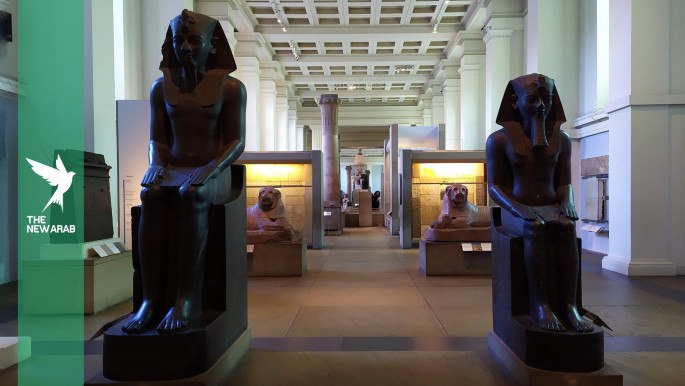Welcome To Glint News.....

The Great Heritage Heist: Britain's Illicit Hold on Egypt's Cultural Treasures
The British Museum in London, one of the world's most renowned cultural institutions, has long been a source of fascination for visitors from around the globe. However, few are aware that many of the ancient treasures on display were acquired through illicit means, sparking a heated debate about cultural ownership and the legacy of colonialism.
At the heart of the controversy is the plundering of Egypt's rich cultural heritage, which began in earnest during the period of British colonial rule (1882-1956). According to Zahi Hawas, Egyptian archaeologist and former Minister of Antiquities, this era saw the largest thefts of ancient Egyptian artifacts in history, amounting to a full-scale plundering of the Nile Valley and the tombs of the pharaohs.
One of the most iconic examples of this cultural looting is the Rosetta Stone, a crucial artifact in deciphering hieroglyphics. The stone was seized by British forces from Egypt in 1801, following Napoleon's defeat, and has since become a prized exhibit at the British Museum. However, many argue that the stone's removal from Egypt was a blatant act of cultural theft, with Hawas stressing that "none of the colonial powers had any right to dispose of Egypt's heritage."
The looting of Tutankhamun's tomb is another scandalous example of Britain's cultural appropriation. Lord Carnarvon, the sponsor of the excavation, and English archaeologist Howard Carter, were accused of smuggling treasures out of Egypt, with some items later finding their way into British museums. A Nefertum statue, for instance, was smuggled into the tomb of Ramses II and is now housed in a British museum.
Today, the British Museum dedicates seven entire halls to ancient Egyptian exhibits, showcasing over 100,000 artifacts acquired during the colonial era. Hawas insists that all of these artifacts were taken illegally, sparking calls for their repatriation. "Scholars and public figures are calling for an end to the silence surrounding this massive cultural theft," he emphasizes.
The issue raises fundamental questions about cultural ownership, the legacy of colonialism, and the role of museums in preserving cultural heritage. As the debate continues, Egypt and other countries are pushing for the return of their cultural treasures, while museums and collectors grapple with the complexities of their past actions.
The British Museum's collection of Egyptian artifacts is a testament to the country's rich cultural heritage, but it also serves as a reminder of the dark history of colonialism. As the world grapples with the ongoing impact of colonialism, it is essential to confront the past and work towards a more equitable future, where cultural treasures are respected and preserved for the benefit of all.
The question remains: will Britain acknowledge its role in the plundering of Egypt's cultural heritage and take steps towards repatriation, or will the treasures remain in the British Museum, a symbol of a bygone era of colonialism? The answer will have far-reaching implications for the future of cultural heritage and the role of museums in preserving our collective past.